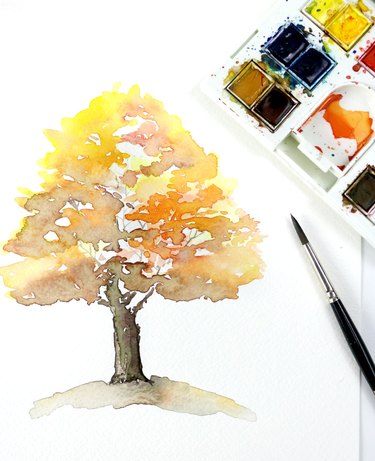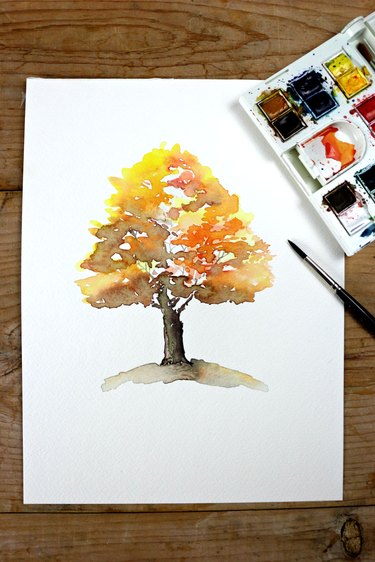
Many of us wait all year long to enjoy the brilliance of the changing leaf colors in fall, but unfortunately, autumn doesn't last very long. If you're sad to see autumn turn into winter, you can preserve a bit of its beauty by painting a fall tree of your own — and you don't need to be an experienced painter to do it. Even better, once you've learned these easy watercolor principles, you can simply change the colors, size, and shape to paint even more trees reflecting the different seasons!
Things You'll Need
Cold press watercolor paper
No. 8 round brush
No. 6 round brush
No. 2/0 fine brush
Watercolor paints
Water basin
Paper towels
Palette
Video of the Day

Tip
The paint colors required for this project are cobalt blue, crimson red, burnt sienna, and winsor yellow. Prepare your palette accordingly.
1. Outline the tree shape
Dip a No. 8 round brush in winsor yellow and outline the loose shape of a tree. Use organic and loose strokes, leaving the center of the tree blank. Alternatively, you can lightly draw the shape of a tree with a pencil and then paint it using the same criteria.
Video of the Day
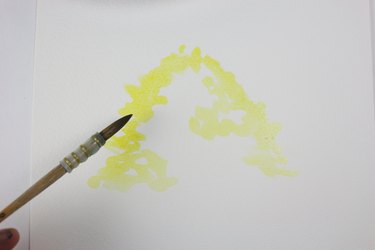
2. Paint over the edges
Mix some winsor yellow with crimson red in a 3:1 ratio. While the paint is still wet, paint over the inner edge of the outline and some of the white area in the center. Create texture and movement by allowing some of the colors to mix.
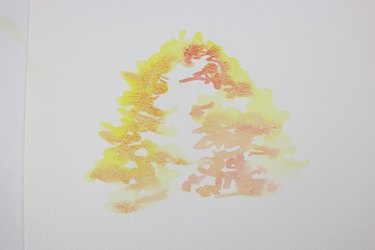
3. Continue painting and mixing
Mix some cobalt blue and burnt sienna in a 1:2 ratio and paint the outer edge of the orange and some more of the white in the center of the tree. Again, it's important to keep the lines organic and loose in order to create movement.
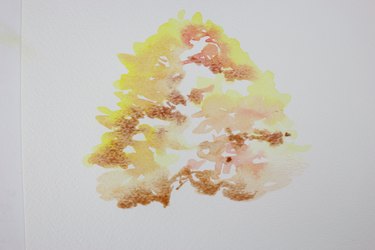
4. Paint the tree trunk
Mix more cobalt blue and burnt sienna, this time using a 1:3 ratio. Using a No. 6 round brush, paint the trunk of the tree.
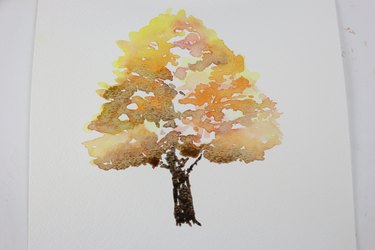
5. Lift some of the paint
While the paint is still wet, use a paper towel to "lift" away some of the paint from the center of the trunk. By "lifting," or removing, some of the paint, you are creating the illusion of highlights and shadows on the tree trunk.
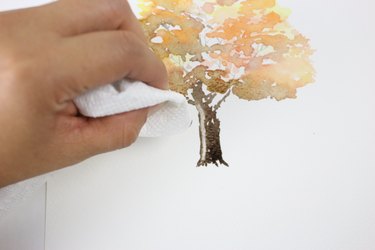
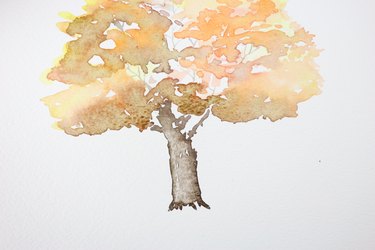
6. Paint small branches
Using a No. 2/0 fine brush and the same paint color as the tree trunk, paint some small branches through the white gaps of the foliage.
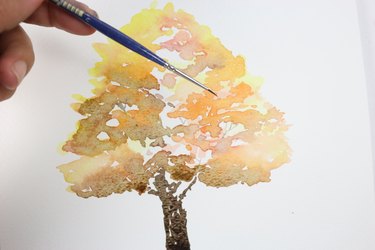
7. Add dimension to the trunk
Mix some winsor yellow, cobalt blue, and burnt sienna in a 2:1:1 ratio to create green. Using a No. 6 round brush, add some of the green paint on the right side of the tree.
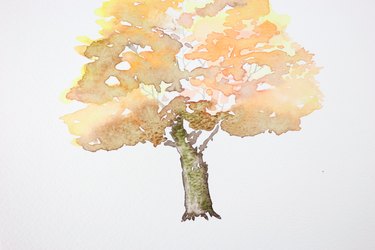
8. Paint the ground
Take some of the residual paint from the brush and lightly paint the ground in a loose, mounded shape.
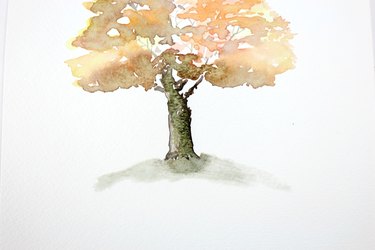
9. Add fallen leaves
Dip a No. 6 round brush in the premixed orange color used in Step 2 and dab it randomly onto the ground. This will create fallen leaves on the ground.
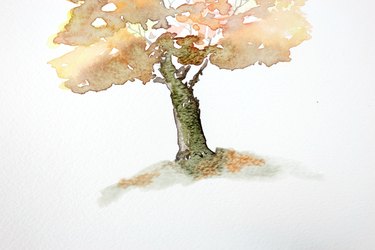
10. Add additional leaves
Repeat Step 9 using winsor yellow. Add more shadows on the trunk if desired using the dark green color.
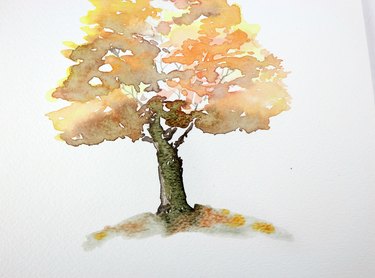
11. Hang your painting
Once your painting has dried, hang it up using decorative washi tape for a whimsical autumn display or frame it and incorporate it into your existing wall art decor.
